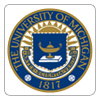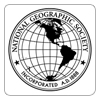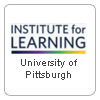Successful science teachers need high quality teaching materials, sustained professional development opportunities, and a school structure that aligns local goals and policies, and supports sustained teacher networks. This project addresses all three of these essential elements in the context of a key topic in the sciences: the role of carbon in the flow of materials and energy through living systems, human engineered systems, and Earth systems at multiple scales. The project builds on previously funded projects that have developed student learning progressions for these topics, and it will develop and test a new professional development model for teachers that is based on a teacher learning progression framework. The framework is based on four core teaching and learning practices advocated by the Next Generation Science Standards (NGSS): formative assessment, inquiry, explanations, and decision making. Online and in-person teacher networks will also be developed and studied for their effects on teacher knowledge and practices, and on student learning.
Project Contributions
Designing Educational Systems to Support Enactment of the Next Generation Science Standards
"This article reports on a design-based implementation research (DBIR) project that addresses the question: How can classrooms be supported at scale to achieve the three-dimensional learning goals of the Next…
"This article reports on a design-based implementation research (DBIR) project that addresses the question: How can classrooms be supported at scale to achieve the three-dimensional learning goals of the Next…
Getty and Colleagues Awarded $7M Grant
"Tom Getty, Chair, of MSU Zoology, is part of a research team that has been awarded a five-year, $7M grant from NSF Programs STEM - Computing Partnerships, DISCOVERY RESEARCH K-12.…
"Tom Getty, Chair, of MSU Zoology, is part of a research team that has been awarded a five-year, $7M grant from NSF Programs STEM - Computing Partnerships, DISCOVERY RESEARCH K-12.…






